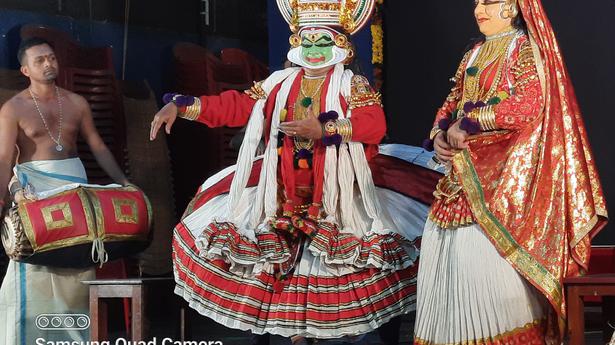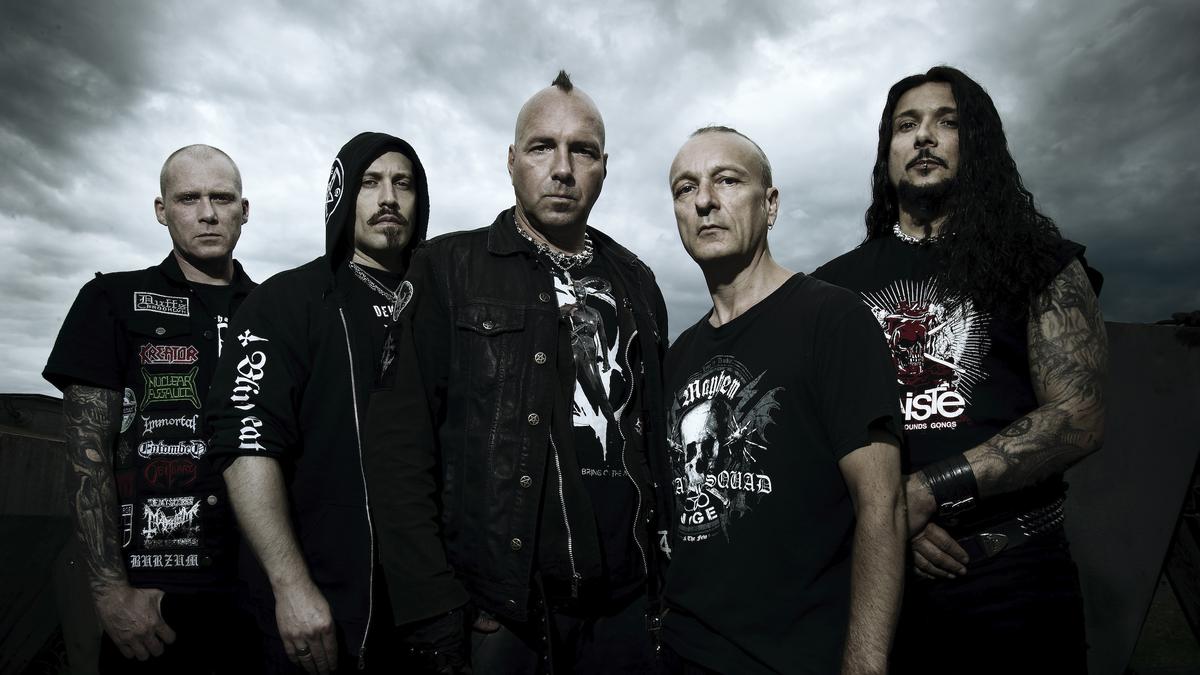‘Sohrab and Rustum’, first staged in the 1970s, was performed recently at ‘Kesaveeyam’
‘Sohrab and Rustum’, first staged in the 1970s, was performed recently at ‘Kesaveeyam’
‘
In 1930, the Kerala Kalamandalam brought in a series of reformations as Kathakali artistes began reaching out to a global audience, and artistes from the West started showing deep interest in the art form. This prompted many Malayalam writers to come up with plays based on poems and stories from around the world.
The late Kalamandalam Kesavan, an accomplished chenda player, was a well-known actor and a prolific writer. In the 1970s, he decided to adapt Mathew Arnold’s narrative poem, ‘Sohrab and Rustum’ with strong tragic themes, to the Kathakali stage. Traditionally, tragedies were not taken up for Kathakali performances. However, Kesavan went ahead and conceived the poem as a play, having ten scenes and six characters.
Memorable sequence
At its maiden presentation, Kalamandalam Krishnan Nair, the fabled actor, played the role of Rustum, the hero, and Vaikom Karunkaran, that of Sohrab.
Their brilliant performances especially made the last scene memorable in which the great warrior Rustum realises that he had unknowingly killed his long-lost son Sohrab.
Though the choreography was in line with tradition, the play failed to make it to the Kathakali repertoire, and was never presented again. But recently it was staged at the Changampuzha Park, Edappally, Kochi, as the concluding performance at ‘Kesaveeyam’, a three-day annual event, held in memory of Kalamandalam Kesavan.
The recital began with a conversation between the couple Rustum and princess Tahmina, in which they recall their love story. When Rustum comes to know of her pregnancy, he hopes she would give birth to a boy. Meanwhile, Rustum is summoned by his father, the king, who is angry over his long absence. Before leaving, he gifts Tahmina a necklace for their unborn child. When he meets the king, Rustum is told he has been dismissed from his post. Tahmina gives birth to a boy, but fearing he would follow his father’s footsteps, sends a message to Rustum that it’s a baby girl. An unhappy Rustum sends the messenger back. Sohrab grows up to be the assistant army chieftain of Turan. His victories lead him to attack Persia, where the father and son engage in a fierce battle unaware of their relationship. Sohrab dies on Rustum’s lap while showing him the necklace. A distraught Rustum calls off the war.
Kalamandalam Sreekumar as Rustum and Chembakkara Vijayan as Tahmina displayed immense involvement. FACT Biju Bhaskar as the Persian king, donning the make up of a kathi (villainous) character, showed restraint. Ranjini Suresh as Sohrab movingly depicted the transformation from an invincible soldier to an inconsolable son. Kalanilayam Rajeevan on the vocal music supported by Vishnu could have enhanced the sequences by choosing some unusual ragas. Kalamandalam Hareesh on the chenda, and Prasanth on the Maddalam added to the visuals with their powerful strokes. The play, if edited further with prudence, could make for a great viewing experience.
The recent staging of the play drove home the point that emotions are universal and that art traverses beyond language and culture.
The author is a critic and connoisseur of traditional art forms of Kerala.





